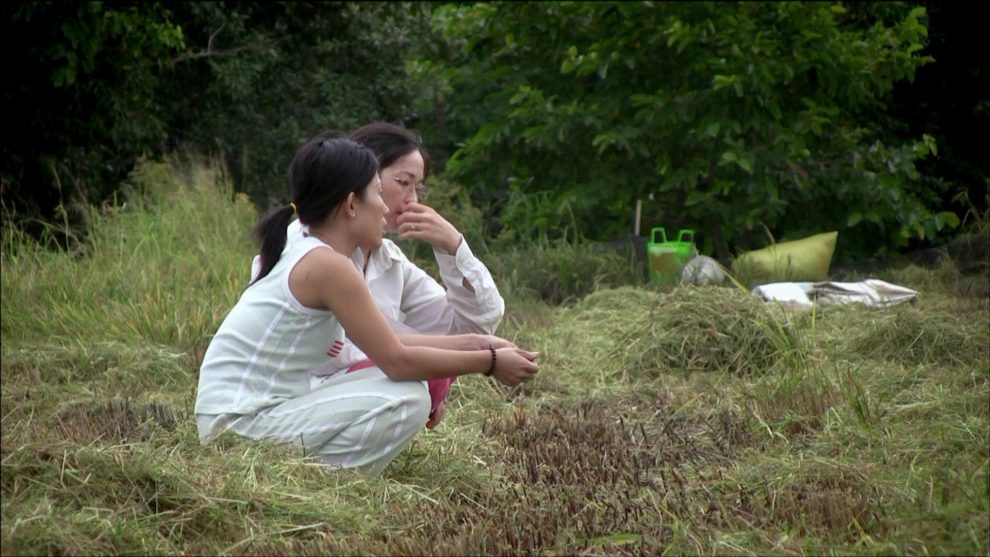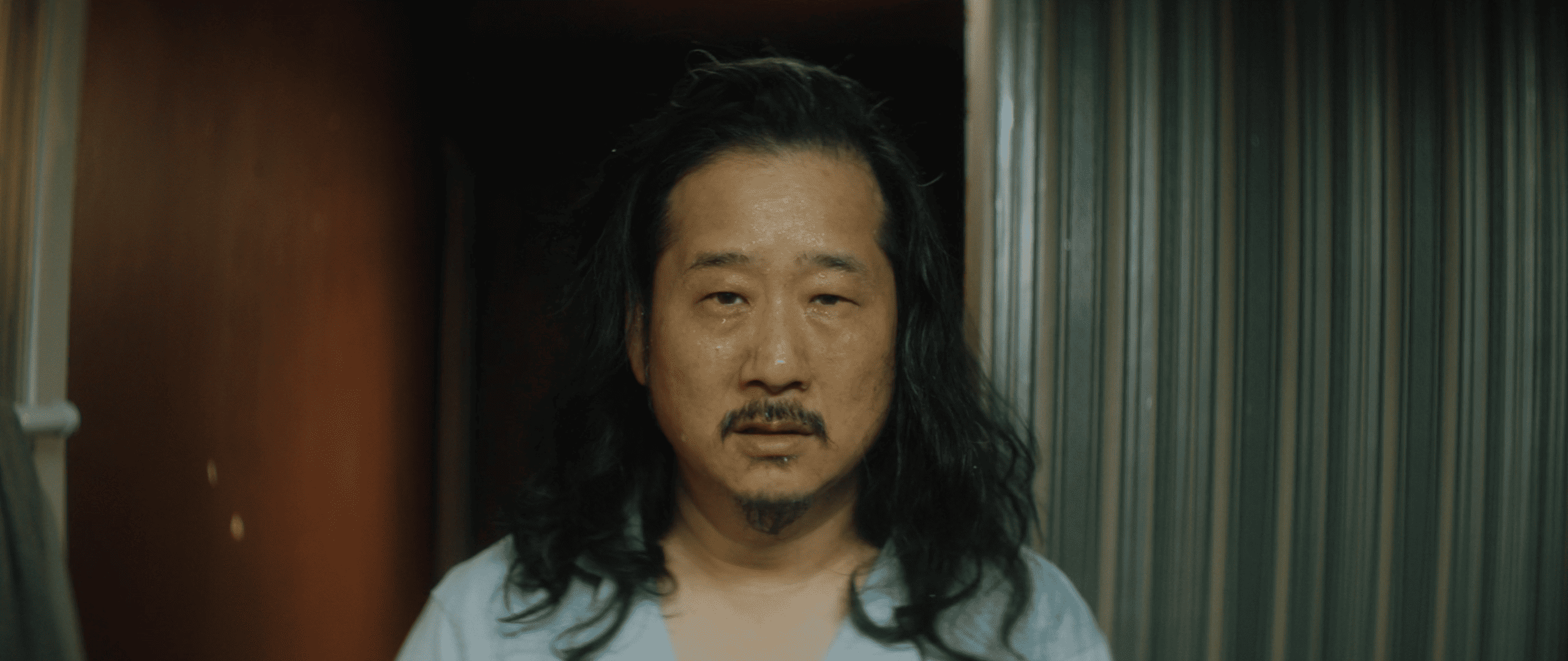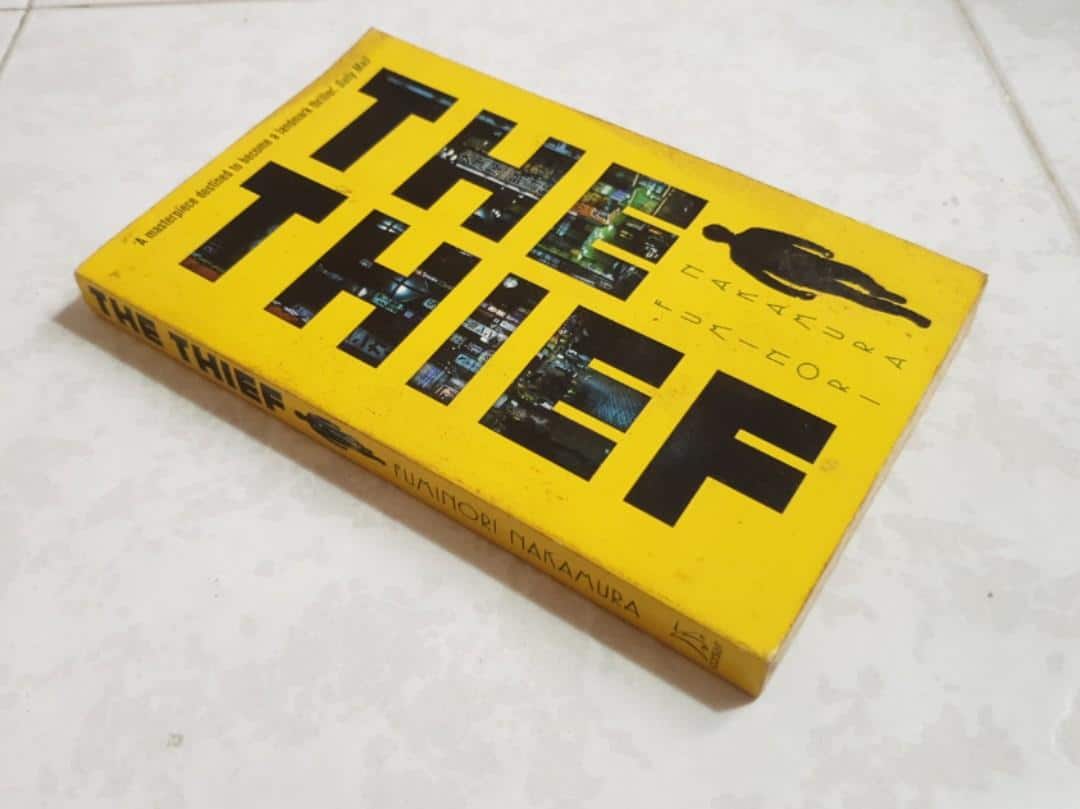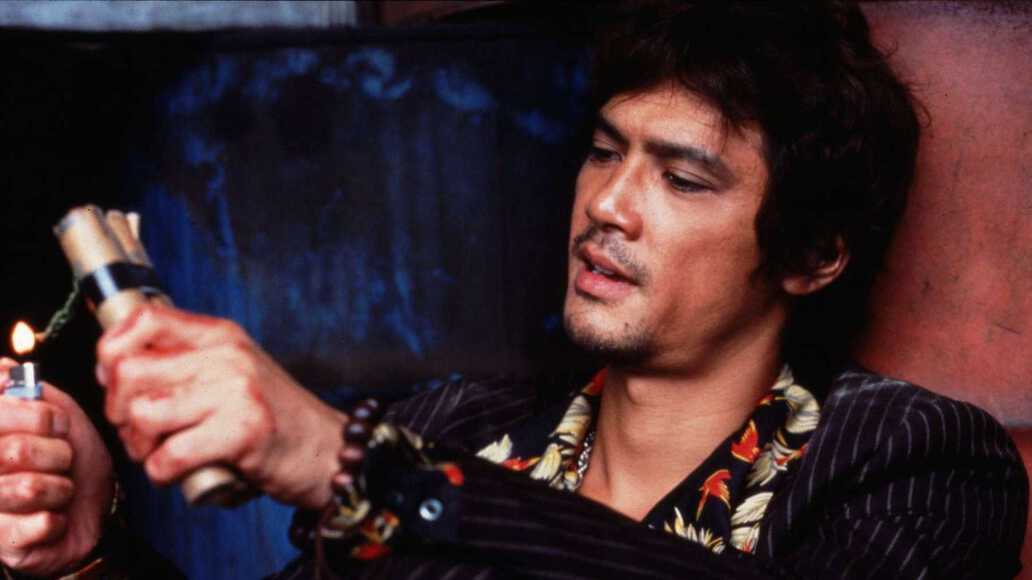The pursuit of happiness, that Sisyphean venture to reach a point of spiritual and emotional fulfilment, unravels itself to us in mysterious ways, often as we never originally intended. Attainment of material wealth, as cinema so often reminds us, is seldom the end goal; if anything, social creatures such as ourselves yearn for a sense of belonging, a place to call home, to lay the foundations of self-improvement. Humans across the span of history have travelled far and wide in search of home and to this day the movement of people, forced or voluntary, is still concerned with such hopes. But the voyage is never without pockets of turbulence, never without emotional battery. Take Nguyen Kim Hong, a Vietnamese woman who sought her happiness in Taiwan in marital union, only for her dream to crumble before her in slow, detrimental fashion across the span of eight years. Hers is a story just beginning and not one in isolation, as her debut feature “Out/Marriage” makes abundantly clear; hers is, sadly, one shared by a plethora of migrant women whose plight is all too regularly ignored.
“Out/Marriage“ is screening at Taiwan Film Festival Edinburgh

Utilising her own experiences as a springboard into the grander narrative of women in her position, Kim Hong does not dwell on herself for too long and is instead more focused on highlighting the situations of other South-East Asian women who have come to Taiwan for marriages into a better life, all of which end in eventual divorce. Practically giving free reign for her subjects – Jin-ling, A-shi, Yu-lan, and Mei-li – to be as open and as vulnerable as they are so willing, Kim Hong paints a vivid and distraught portrait of marriages to uncaring, often alcoholic men who neglect and beat their wives in front of their children. Divorced, these women return home to their families in Vietnam, their lives in a constant state of flux between two worlds doing all they can to raise their children to the best of their abilities. Far from remaining in situ “Out/Marriage” raises spirits just as much as it causes them to sink, as out of its cast's situation they find solace in the company of each other within a unique diaspora, pushing each other to rise from the ashes of their broken relationships, moving forward in their lives for the sake of not just their happiness but for their children's too.
Dwelling in such a heavy place there is ample opportunity to sully these women's stories with a deliberate emotional manipulation, clutching at its audience's tear ducts and heartstrings to extract a response and yet not once does Kim Hong resort to such tactics. The matter-of-fact execution of her documentary and the raw delivery of her interviewees alone is enough to catch you off-guard, striking a more impactful chord with its brutal honesty and intimate familiarity. The most gut-wrenching of these is with A-shi, who, after leaving her ex-husband to be with Kim Hong's brother in yet another unfulfilling relationship, recalls her neglect with a numbing intensity as if she's physically reliving everything there and then. Her voice trembles, and eventually her eyes water not with sadness but with pain. It makes for an excruciating watch, especially in the knowledge the Taiwanese police do little to help immigrant women in these situations and alongside the other testimonies here – including Jin-ling's, whose daughter draws the abuse her mother suffered – but the respect with which Kim Hong treats them with unfathomable.
But “Out/Marriage” is a whole lot more than the forlorn tribulations migrant women suffer during their life journey. If anything, the film is a love letter to home, to family, to sisterhood, and to motherhood. There is a nostalgic yearning for Vietnam so warming it reminds us no matter how far we go, we always carry a little piece of where we left behind; what was left behind was far from an easy life, but the familial closeness running rampant throughout is a comfort to see. But for all the ties, none come quite as close to the endearing bonds between mother and daughter, and for most of their time on screen together both Kim Hong and Jin-ling with their daughters are inseparable – when their proximity becomes temporarily extended for work we feel that agonising separation where it hurts the most. Such bonds are exhibited with love and tenderness, even between the women themselves, and this only serves to humanise them in every way possible, grounding the documentary even further with glaring authenticity.
Aiding in all this is Kim Hong and Tsai Tsung-lung incredibly personal point-of-view documentary cinematography, which does not necessarily make us feel we are watching the film as opposed to physically being supplanted into it. Intrusive at times but a privilege never abused, the very bare-bones nature of their approach feels a little too real, not quite uncomfortable but leaving us feel as if we have overstayed our welcome. This comes even as a courtesy to its condensed runtime and loose narrative structure, edited in such a way to feel like an underdog story, once which we are transported to for only a heartbeat but feel as if we have lived many lifetimes. It can feel like an ordeal given its enormity, but it isn't one we are likely to forget any time soon.
The level of organic camaraderie within the reels of film is what ultimately gives this film its edge: this is a lived experience, a rare opportunity to empathise with very real characters in a very real circumstance; they are neither here nor there, belonging to two different identities but never definitively belonging, that their Taiwanified communication and identity has done little to sever their mother tongues and cultures but has made it difficult to return. It is not enough their arrangements have typically garnered ill-judgements from onlookers (marrying for money, then divorcing into sex work), but to feel trapped in an environment far away from home is beyond nauseating. Despite turning eight this year, the stories in “Out/Marriage” are still vying to be told, to reach a global audience, to have a far grander platform for their voices to be heard. These are strong voices and thanks to the work of Kim Hong and others like her they are unlikely to be quelled anytime soon.















